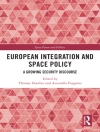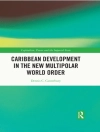First Published in 1999. Oman in the decades prior to the 1960s was largely isolated from the rest of the world and its changing economies and societies. With a limited education, little international links, small health systems and government under the then Sultan Said bin Taimur. Rural communities in northern Oman had very little contact with the Sultan’s government, which was based in the southern province of Dhofar. In a world in which people in most countries, including the Gulf States, gained at least some benefit from modem education and health services, Omani villagers and pastoralists had recourse only to Koranic schools and traditional healers. On the other hand, however, they retained full responsibility for the management of their rural resources on which they depended for their livelihoods and for life itself and had evolved effective communal systems for their development and conservation. These were exemplified by regulations governing the protection of trees and by the work of the committees which controlled the traditional falaj water supply network. People worked interdependently, responding to the contributions made by other members of the rural communities in a system of mutual self-reliance. They also lived ~n harmony with their environment in a manner which time had proven to be truly sustainable. This volume looks at the changes that occurred after Sultan Qaboos came to power in 1970.
Roderic W Dutton
Changing Rural Systems In Oman [PDF ebook]
The Khabura Project
Changing Rural Systems In Oman [PDF ebook]
The Khabura Project
Купите эту электронную книгу и получите еще одну БЕСПЛАТНО!
язык английский ● Формат PDF ● страницы 264 ● ISBN 9781136174919 ● издатель Taylor and Francis ● опубликованный 2013 ● Загружаемые 3 раз ● валюта EUR ● Код товара 4900864 ● Защита от копирования Adobe DRM
Требуется устройство для чтения электронных книг с поддержкой DRM












